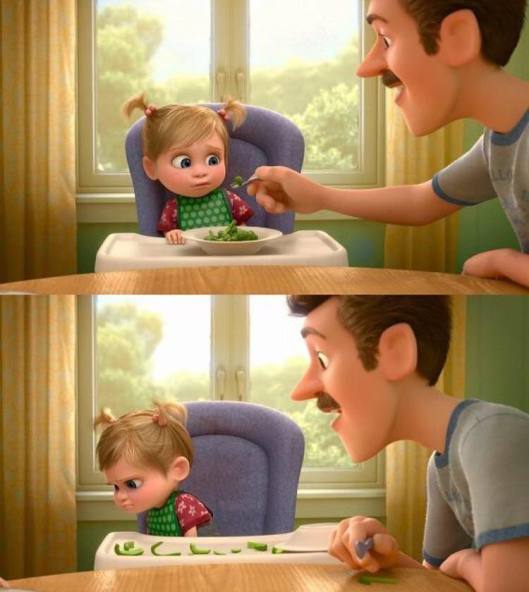Spanish for Spain or for Latin America? For Susie Bright
With Spanish, a language that is used so widely all over the world, with so many different cultural differences, how do you approach a text? Is there a marked different between Spanish for the European market versus Spanish titles for the Mexican, Central American, and South American market? I was overwhelmed when I first considered it.
—Asked Susie Bright.
Don’t feel overwhelmed by my long reply below. The TL;DR version is: for most academic content one translation will do. For sexy content, get as specific as your viewers demand and you can afford or is economically logical.
Spanish, like English, has spread worldwide and it has some tricky nuances to bear in mind and quite a few delightful ways in which people from very different parts of the world can understand and feel familiar around each other.
As with English, the more academic the text, the less adaptation is needed. After all, science is written to last and to be universally understood.
Literature for grown ups is not adapted: we understand perfectly well enough (would you understand a book from South Africa? New Zealand?), we are aware of the things that are said differently overseas, and we can get a dictionary in case we’re in doubt. And the Spanish Language academies all throughout the world try to compromise on the DRAE, a common dictionary which is our golden standard.
It gets more difficult the more colloquial, heart-felt, intimate, inside-joke-full, poetic, a text is —if I publish my poetry I’ll call it Plausible Deniability, because it is about telling without saying things directly. Generally in translation the difficulty is not, thus, in what people say, but in what people do not say, in how much the text relies in a common notion of the world.
I’ll give you an example from this book, that I gather you’ve read. There is a fragment in which a black female performer refuses to act in a scene that would portray her as eating a watermelon slice with a white co-star. The male star is also outraged and offers to eat it himself. As a white (? you could consider me Hispanic, but that’s a conversation for another day) European Spanish woman, I did not understand this at all at first.
Why is she scandalised of the notion of being filmed — in a porn movie — eating a watermelon? Is this slang for something else? Then I researched the topic and found that there is a negative black stereotype that is linked to watermelon eating (see: http://www.ferris.edu/jimcrow/coon/ http://www.ferris.edu/HTMLS/news/jimcrow/coon/lazy.jpg).

American racist, insulting caricature from the early 20th century. Source.
This stereotype just does not exist in the Spanish world, that I know of, so this would have to be explained, probably in a note, and thus the outrage at the notion will be second-hand and directed by the text of the note. Will this be the same for all Spanish readers? Maybe. Or maybe some of the black Spanish readers have suffered because of this stereotype. But to me it is safer to assume that this needs to be explained somehow, even if some the complicity is ruined by the explanation. This is a good solution for an academic text. But if we were translating a movie where this happened, we would need to use other resources, because a footnote is just not possible.
Generally, anything that appeals to feelings, or is for children, or tries to bypass the rational part of the brain and get to the part that feels (or buys on an impulse), that sort of thing, is adapted for each locale, each different variant of Spanish. The bigger the market, the deeper the pocket, the cheaper the adaptation… the more variants are produced, if they make economic sense.
For example, Disney and Google adapt their texts to a myriad little variants. Even the “yucky” food a child rejects in the Pixar movie Inside Out gets replaced depending on the country.

Broccoli vs green peppers in Inside Out, by Pixar. Capture seen at Scheherezade Surià‘s blog.
The Harry Potter books were adapted for the US from the British original… but the Spanish book translations were not (low budget maybe?).
The Harry Potter films were however dubbed twice, for the Latin American market and the European Spanish market (the deeper pockets of Warner Bros? Most probably). But high budget films, specially movies for kids from the late 80s on, are now dubbed at least twice. I remember fondly the Disney movies of my childhood dubbed in a Mid-atlantic Spanish that is just not fashionable now. The new editions are re-dubbed and I’m not the only one who misses the lovely slightly Latin way of speaking those characters used to have. Aren’t they from a country far away? Why do they speak like someone from Madrid? But I digress.
In my case, the decision to translate for Spain, for Latin America, for a specific Latin American market, or to try to compromise is normally made by the client.
For The Feminist Porn Book, the publishing house is Spanish from Spain and has given me Spanish from Spain references when it comes to style. I will try to avoid verbs that may sound bad overseas unless I mean it (coger, in Spain “to grab”, in LatAm “to fuck”) but I will use Spanish grammar, specially the formal/informal you.
I translate apps for a well known open-source software company and they prefer what they call International Spanish, which consists in using words that everyone finds equally uncomfortable in both sides of the Atlantic (such as PC instead of ordenador in Spain or computadora in LatAm). We treat everyone formally in order to avoid informal you conundrums.
If a client requests Latin American Spanish specifically, I refer them to experienced, competent Latin American colleagues.
—
Header photo: me in my native Nicaragua. Yes, it’s a long story.
This was my email to Susie Bright. What do you think? How do you do it?
Related Posts
 09
Jun
09
Jun
What if I had a year to live?
On Tuesday my Interpreting students at University brought to class, as practice material, an interview with the star of Breaking Bad. The text contained the question: What would you do if you had a year to live? It was funny, at the time, to think that it’s just one year since Benita, my German mom, left
 25
Jul
25
Jul
No more swearing in English?
Somebody makes a pseudo-stupid joke at my son Quique in the street —something I’ll never understand. Pablo looks at me with his best “what the hell just happened, did you get it?” and our telepathy fails for a moment, and I have to make do with expressing my thoughts with words, and in front of









 0
0

Comentarios